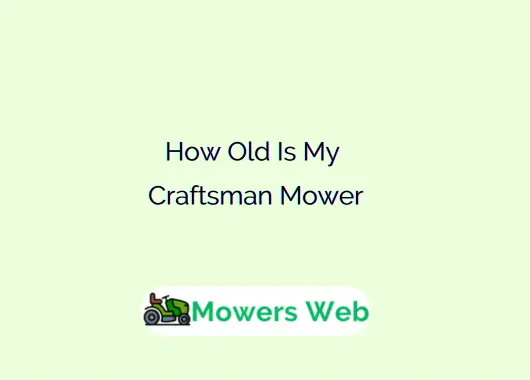Riding mowers are built to last, but eventually the deck rusts out, the transmission fails, or the repair cost becomes higher than buying a new machine. Many homeowners are surprised to learn that you can’t simply toss a lawn tractor in the trash, there are rules, disposal fees, environmental requirements, and even opportunities to make money from the parts. This guide explains every practical method for removing, recycling, selling, or scrapping an old riding mower.
How to Get Rid of Old Riding Mower
1. Remove All Fluids Before Disposal
Regardless of which disposal method you choose, you must start by draining the oil, gasoline, and fuel additives. Riding mowers contain hazardous materials that cannot be legally thrown away with household waste.
Steps:
- Run the mower until the gas tank is empty, or siphon out the fuel.
- Drain the engine oil into a pan and take it to a recycling center.
- Remove the battery and recycle it separately at an auto parts store.
- Allow the mower to sit for a few hours to ensure all fumes evaporate.
Never dump fuel or oil on the ground, it’s illegal and harmful to the environment. Most cities offer free drop-off for used oil and batteries.
2. Trade It In When Buying a New Mower
Some dealerships offer trade-in programs when you buy a new riding mower. Even if your mower isn’t working, it may still qualify for a small credit because many dealerships strip them for parts.
Pros:
- Fast and convenient
- No need to transport the mower to the junkyard
- You may get a discount on your new purchase
Cons:
- Not all stores offer trade-ins
- Value may be low depending on the condition
Check with your local John Deere, Husqvarna, or Cub Cadet dealer to see if they have a trade-in or recycling program.
Related Where Can I Sell my Lawn Mower(Top Places to Sell It)
3. Sell It for Parts
Even a non-running mower contains valuable components, especially engines, decks, transmissions, wheels, and electrical parts. Selling parts individually is one of the best ways to earn money.
Where to sell parts:
- Facebook Marketplace
- Craigslist
- Local lawn mower repair shops
- Small engine repair groups
If the engine runs, you can often sell it for $100–$300, depending on the brand. Transmissions also fetch good money.
4. Sell It as a “Project Mower”
Many backyard mechanics and lawn care enthusiasts love fixing up cheap or broken mowers. Listing it as a project mower can save you time, even if you only get a small amount for it.
Tips for selling:
- Be honest about the condition
- Mention any recent repairs or new parts
- Take clear photos
- Set a reasonable price (usually $50–$200, depending on condition)
This is often faster than parting it out and still puts the machine to good use.
Related How to Get Old Gas Out of Lawn Mower(In 5 Quick Steps)
5. Donate It to a Vo-Tech School or Community Repair Program
Vocational schools, small engine classes, and nonprofit repair programs often look for broken equipment they can use for training. Your old riding mower can help students learn hands-on mechanical skills.
Benefits:
- Free pickup in many cases
- Helps students and the community
- Eco-friendly
Contact nearby high schools, technical colleges, or community workshops to ask if they accept equipment donations.
6. Take It to a Scrap Yard
If the mower is completely beyond repair, scrapping it is the easiest and most responsible disposal method. Riding mowers are mostly steel, and scrap yards pay by weight.
What to expect:
- Most riding mowers weigh 300–600 pounds
- Scrap prices vary but typically range from $30–$100 per mower
- You may need to remove fluids before drop-off
Call ahead, some scrap yards accept whole mowers, while others require engines or plastics removed first.
Related How Many Hours Is a Lot for a Lawn Mower(Complete Guide)
7. Use a Junk Removal Service
If you want the fastest and least stressful option, junk removal services will pick up your riding mower directly from your home. This is ideal if you don’t have a trailer or truck.
Pros:
- No lifting or transportation
- Same-day pickup in some areas
- They handle eco-friendly disposal
Cons:
- This is the most expensive option
- Prices range from $80–$200, depending on location
Companies like 1-800-GOT-JUNK or local haulers are commonly used for this service.
8. Repurpose the Mower
If you enjoy DIY projects, old riding mower frames can be repurposed into creative items:
- Garden carts
- Utility trailers
- Off-road go-kart projects
- Farm equipment haulers
- Yard decorations
Repurposing keeps it out of the landfill and gives old parts a second life.
Related Mower Productivity Calculator
9. Check Your Local City’s Bulk Pickup Rules
Some municipalities accept large metal items during scheduled bulk trash pickup. However, you’ll almost always need to remove fluids first.
Visit your city or county waste management website and confirm:
- Whether lawn tractors are allowed
- Pickup dates
- Any fees involved
Never leave the mower at the curb without verifying the rules, many areas consider it illegal dumping.
Final Tips Before Disposing of Your Riding Mower
- Always empty gas and oil, no exceptions.
- Remove the battery and recycle it separately.
- Take pictures of the mower if selling or donating.
- Consider the value of parts before scrapping.
- Choose a disposal method that fits your budget and time.
Final words
Getting rid of an old riding mower doesn’t have to be complicated. Whether you choose to sell it, donate it, scrap it, or repurpose it, there are many safe and environmentally responsible options.
By following the steps in this guide, you can clear space in your garage, avoid disposal fines, and ensure your mower is handled properly. If you’re replacing it with a new mower, many dealers even offer trade-in credit, making the process even easier.




